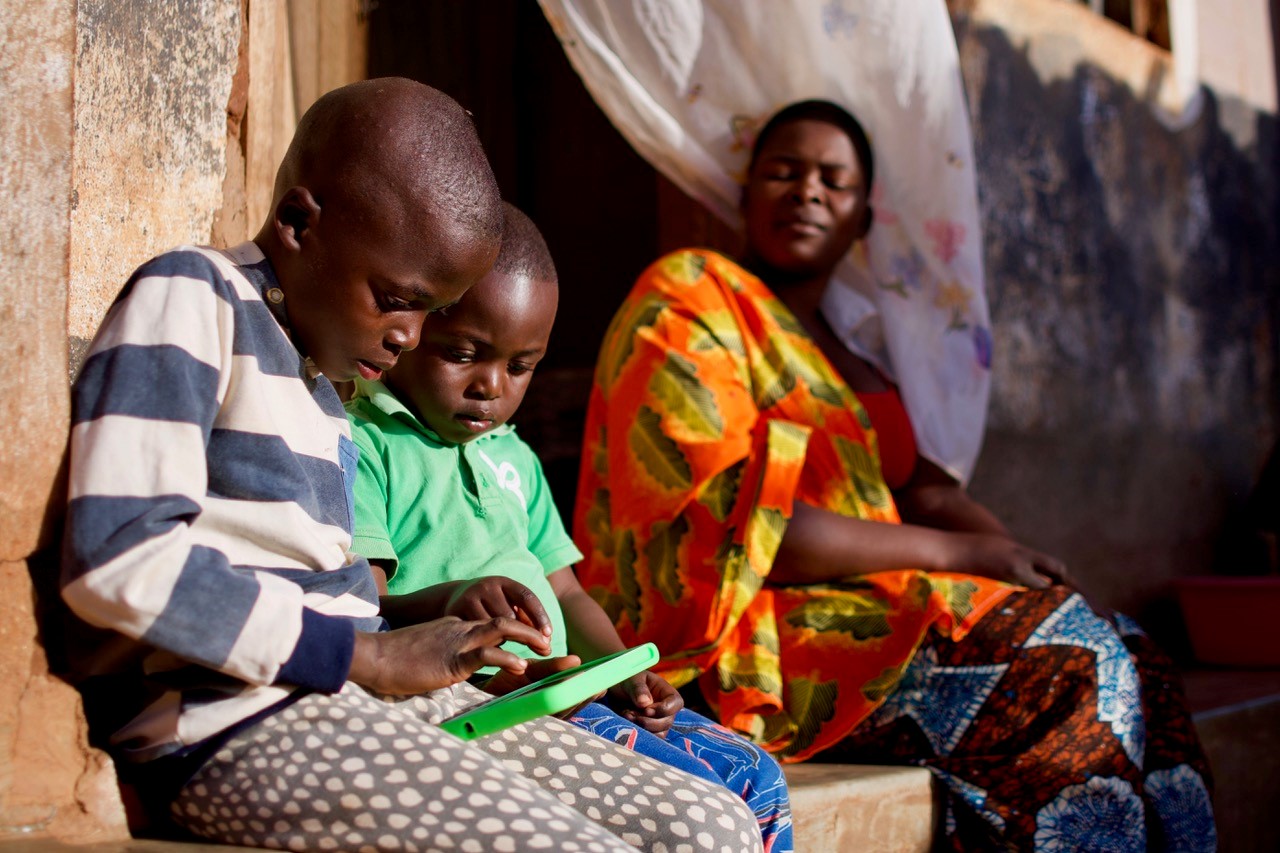
Pop-Up Learning Tanzania
Bringing high quality digital learning to the homes of last mile learners affected by COVID-19.
With more students out of school around the world due to COVID-19 than ever before, we need solutions that ensure the hardest-to-reach children receive quality education. The IRC is delivering a fully remote at-home learning solution to out-of-school children in Tanzania.
With a high and ever-changing number of students out of school around the world due to COVID-19, the need for innovative solutions to enable access to quality education is more acute than ever. Distance learning programs have the potential to give children a sense of stability and educational continuity, but they are still very difficult to implement in rural and inaccessible areas of Tanzania and other crisis-affected countries.
The IRC, in partnership with Imagine Worldwide and onebillion, is implementing Pop-Up Learning in Tanzania, a fully remote digital learning program where children learn at home on a tablet using child-friendly learning software available. The software is adaptive, meaning it is designed so that children can pick-up a tablet, take a short quiz, and immediately begin learning at their level. The software works offline and can only be used for educational activities. Remote support is provided to caregivers to resolve technical issues and messages informed by behavioral science increase usage of the tablet at home. The tablets, called onetab, were also created by onebillion and are designed to be easy to use and prevent breakage and come with a solar charger that allows the tablet to be charged anywhere. The project aims to reach 1,000 homes and approximately 3,000 children in the Kigoma district of Tanzania.
Pop-Up Learning in Tanzania can be deployed as a replacement learning solution when access to school is not an option, or as a supplemental or remedial learning program when children return to school after a crisis.
While schools are closed, Pop-Up Learning Tanzania provides dependable access to high-quality learning materials in Swahili to children grades 1 through 3 that adapts to their current education level. It supports the development of foundational literacy and numeracy skills. As schools re-open, this program is able to function as a supplemental solution to boost learning opportunities or as a remedial solution to help children who may have fallen behind during COVID-19 school closures. This program aims to:
- Improve access: Exacerbated by COVID-19, more children are unable to attend schools, and home-based learning materials are limited, difficult to access, and at times, non-existent. Pop-Up Tanzania provides an opportunity for children to continue learning in a context that would normally make accessing education challenging or even impossible.
- Improve impact: Children are provided with a playful, interactive, and adaptive curriculum enabling them to gain foundational literacy and numeracy skills without the need for a skilled teacher or a formal school infrastructure.
- Improve cost: Costs are optimized over time compared to traditional teaching models, as this program circumvents costs associated with hiring, managing and training teachers; as well as additional infrastructure costs.
- Improved scale: Not being dependent on school infrastructure or skilled teachers improves our ability to scale educational programming in more contexts. The investment in tablet-based learning at home enables learning to happen even in the most challenging environments.
Until a longer term and accessible solution for COVID-19 related risks exists, children’s education may continue to be disrupted for the foreseeable future in Tanzania and in other crisis-affected contexts.
Project Timeline
Pilot phase concludes
40% of tablets from the pilot phase are collected In-depth household and Pop-Up Teacher interviews are conducted
Pilot phase begins
688 tablets are distributed to households reaching 1,239 children Pop-Up Teachers are selected and trained on tablet usage and technology support